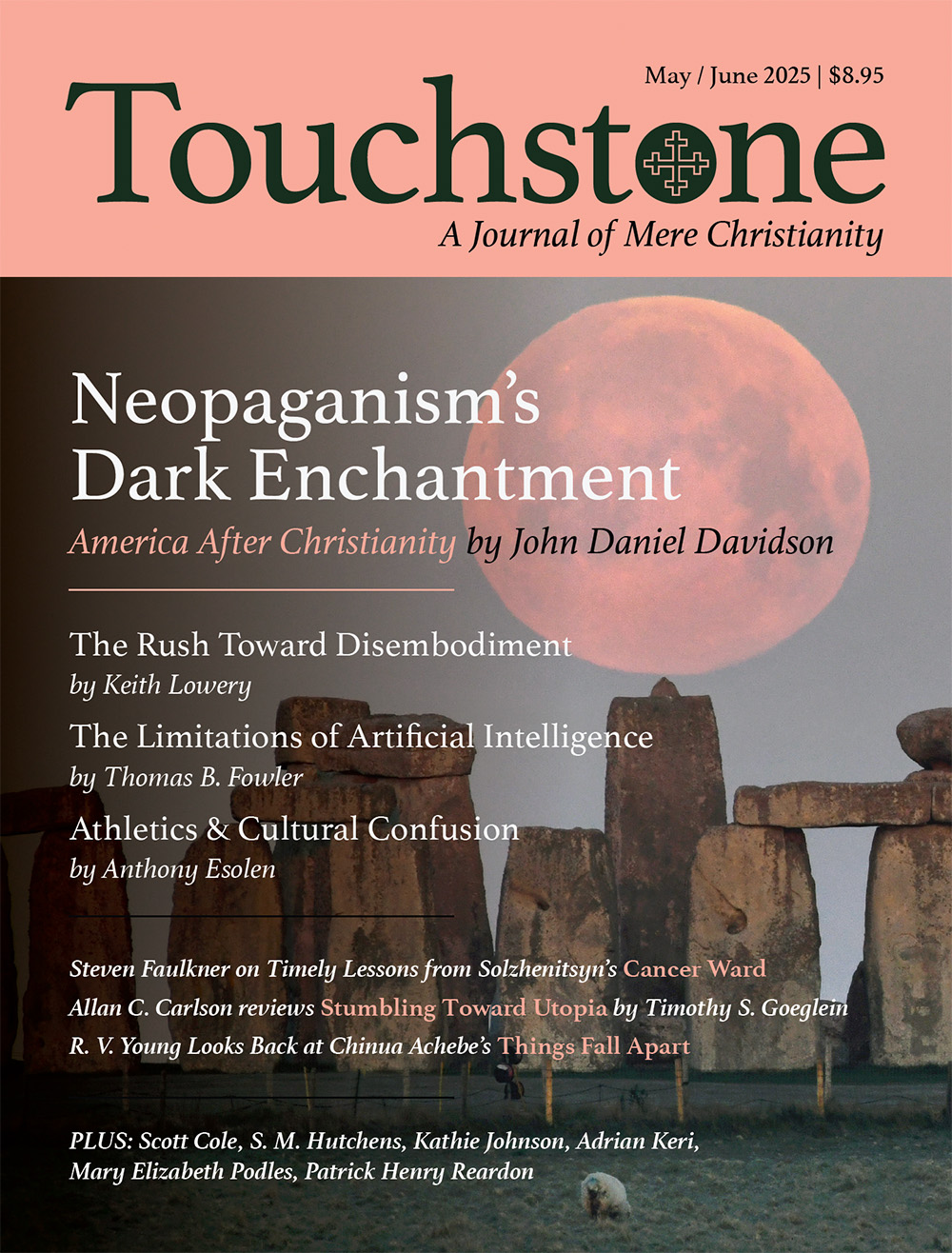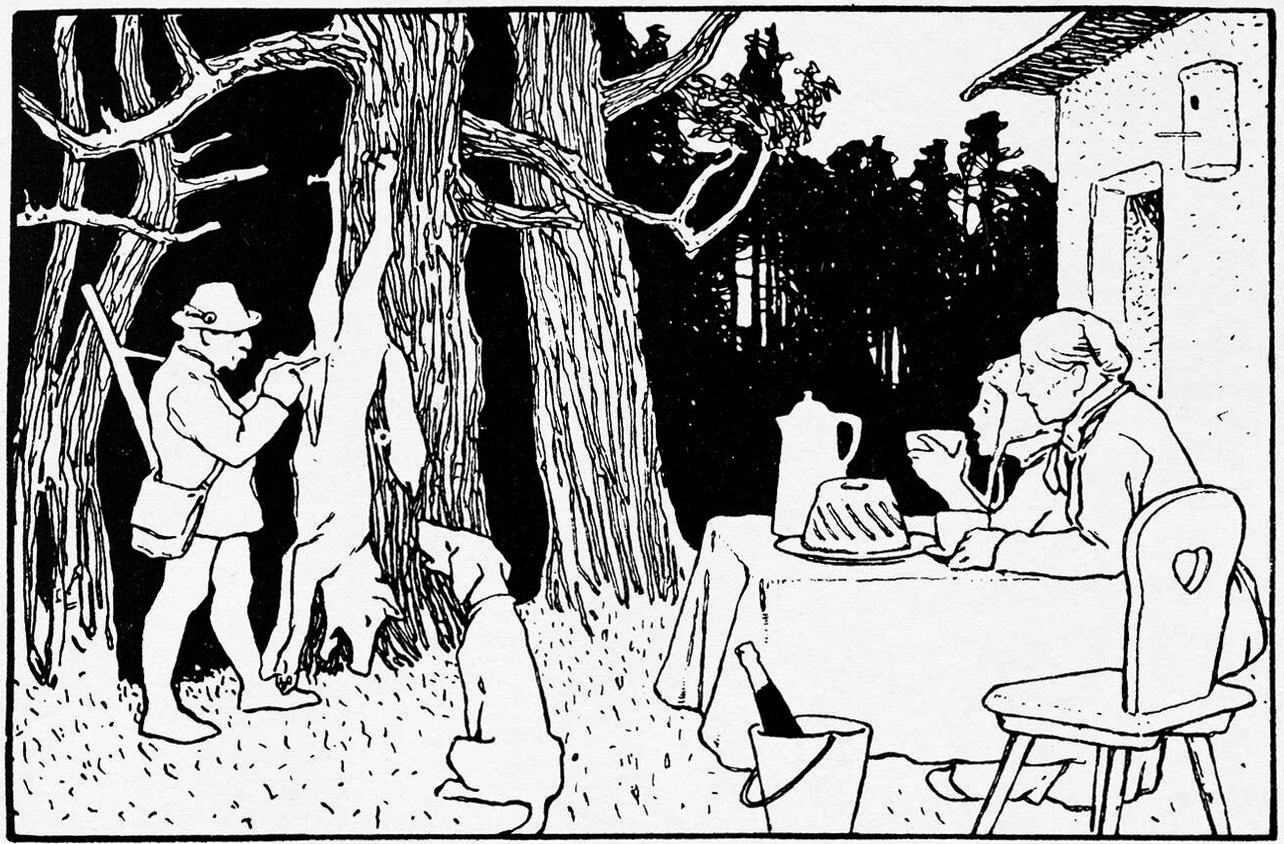America After Christianity
Neopaganism’s Dark Enchantment
Archbishop Fulton Sheen declared in a 1974 television address that “we are at the end of Christendom,” which he defined as “economic, political, [and] social life as inspired by Christian principles.” “That is ending,” he said; “we’ve seen it die.” A quarter-century later, Pope St. John Paul II said, “Even in countries evangelized many centuries ago, the reality of a ‘Christian society’ which, amid all the frailties which have always marked human life, measured itself explicitly on Gospel values, is now gone.”
However debatable Sheen’s assessment was fifty years ago, or John Paul’s was in 2001, it is undeniable today. Christendom is gone. Whether we realize it or not, the West has entered a new, post-Christian era.
What does that mean, exactly? To begin with, it means Christian morality will no longer shape our public life. It also means we will no longer desire or seek out Christians for positions of leadership in society. In fact, we will consider sincere Christians to be bigots and fascists, unfit for positions of public trust. This opinion has already been widely adopted by the mainstream left, and on certain subjects it is now being adopted by the mainstream right. In sum, the de-Christianization of America means that the mainstream culture in our country will not simply be secular or neutral toward Christians; it will be actively hostile towards the Christian faith.
If a de-Christianized America is hostile towards the Christian faith, it will also be hostile toward those ideals and principles that are derived from and dependent on that faith—things like freedom of speech and religion, government by consent, equality under the law, basic human rights. None of these things will be tolerated by a post-Christian cultural and political order. They will disappear along with Christendom. They are already disappearing right before our eyes.
Most people in the West today do not realize this or do not accept it. But it is happening all the same. Therefore, our task is, first, to accept that this sea-change is happening—indeed, that it has already happened—and second, to persuade others of the reality of our situation. Only then can we begin to think clearly about what is to be done about it.
Parallels with Fading Pagan Rome
There is a historical comparison that might help us wrap our minds around this. In The Final Pagan Generation, historian Edward Watts writes that Romans born in the first quarter of the fourth century AD were the last cohort of Roman pagans. These Romans were
born into a world in which most people believed that the pagan public religious order of the past few millennia would continue indefinitely. They were the last Romans to grow up in a world that simply could not imagine a Roman world dominated by a Christian majority.
When their world finally collapsed, they were old men who did not realize that for most of their lives they had been living in a social and religious order that was disappearing forever. The oldest members of this generation were born into an empire that had never had a Christian emperor and had actively suppressed Christianity and viciously persecuted Christians. They would die in an empire that would never again be ruled by a pagan emperor and would never again publicly support the pagan sacrifices, temples, and festivals of the old Roman order. They did not see Christendom coming, and when it came, they could not believe it would transform their world forever.
It behooves us to think of this generation now, not because our Christian faith is at risk of the same fate as Roman paganism, but because we are at risk of making the same mistakes the final pagan generation did: assuming that our society and civilization will long survive cut off from its source, which has always been the Christian faith, alive and active among the people. As Christianity fades from public life in the West, something else will take its place. Something else is already taking its place.
This new, post-Christian era in the West is best understood as a re-paganization—that is, paganism returning in a modern form. You might call it neopaganism for a technological and digital age.
John Daniel Davidson is a senior editor at The Federalist and the author of Pagan America: The Decline of Christianity and the Dark Age to Come (Regnery, 2024).
subscription options
Order
Print/Online Subscription

Get six issues (one year) of Touchstone PLUS full online access including pdf downloads for only $39.95. That's only $3.34 per month!
Order
Online Only
Subscription

Get a one-year full-access subscription to the Touchstone online archives for only $19.95. That's only $1.66 per month!
bulk subscriptions
Order Touchstone subscriptions in bulk and save $10 per sub! Each subscription includes 6 issues of Touchstone plus full online access to touchstonemag.com—including archives, videos, and pdf downloads of recent issues for only $29.95 each! Great for churches or study groups.
Transactions will be processed on a secure server.
more from the online archives

33.2—March/April 2020
Christian Pro-Family Governments?
Old & New Lessons from Europe by Allan C. Carlson
calling all readers
Please Donate
"There are magazines worth reading but few worth saving . . . Touchstone is just such a magazine."
—Alice von Hildebrand
"Here we do not concede one square millimeter of territory to falsehood, folly, contemporary sentimentality, or fashion. We speak the truth, and let God be our judge. . . . Touchstone is the one committedly Christian conservative journal."
—Anthony Esolen, Touchstone senior editor









